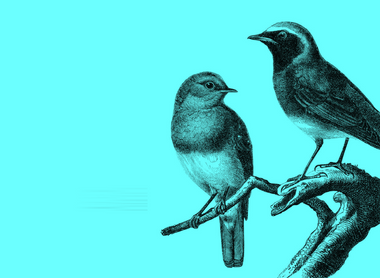
Introduction to Biological Sciences
Biological sciences form the foundation of our understanding of life and its complexities. This field encompasses the study of living organisms, their structures, functions, behaviours, and interactions with the environment. From microscopic organisms to entire ecosystems, biological sciences offer insights into the mechanisms that govern life on Earth.
Biological sciences play a crucial role in addressing global challenges such as climate change, infectious diseases, biodiversity loss, and food security. By understanding the principles of biology, scientists can develop innovative solutions and technologies to address these pressing issues and improve the quality of life for all living organisms.
In essence, biological sciences provide a framework for understanding the complexity and diversity of life forms on Earth. Whether studying the genetic code of organisms, the dynamics of ecosystems, or the biochemical processes within cells, biological sciences offer a rich tapestry of knowledge and discovery that continues to inspire and shape our understanding of the natural world.
Studying Biological Sciences at School
There are many reasons to choose to study biology at school. For example, you may have a specific career path or further education option in mind that requires you to have a school-level qualification in biology, or maybe you're simply interested in learning about the world around us. Studying biology at school opens up a vast range of opportunities for both university degrees and careers, many of which can take you all around the world.
A good place to start if you wish to pursue a career in biological sciences is gaining a school certificate in the subject. In the UK this would be a GCSE and/or A-level or an equivalent high school/secondary school diploma if studying in other countries. If you are doing a broader range of qualifications, such as the International Baccalaureate, you could demonstrate your interest and expand your knowledge of biological sciences by doing an independent research project on a bioscience subject or gaining a volunteer
experience.
Specific content covered within biology qualifications for 16 to 18-year-olds may vary from school to school, depending on
the qualification type and the exam provider. Typical topics may include molecules, cells, organisms and their environment, energy transfers, genetics, populations, evolution, and ecosystems.
Whichever programme your school follows, you will not only gain in-depth knowledge of the biological world but also other transferable skills such as an understanding of scientific methods, data analysis, observation, correlations and causal relationships, problem-solving, organisation, and analytical skills. If group project work occurs throughout the course, you can also develop good teamwork and communication skills.
Further reading
Studying Biological Sciences at University
Which course to study
Studying biological sciences at university covers a number of different course options and specialist subjects. This means you can choose subject areas that most appeal to you, but the choice is large and can be a bit overwhelming.
Instead, consider the degree you choose as a blanket term; the specific content of each course will be very different depending on the modules you choose within that course. It’s useful to look at the different modules at the universities you are applying to, as course content can vary significantly between universities. In the first year of your degree, you are likely to cover a wide range of topics, choosing your preferred areas to focus on in the second and third years. This is good if you haven't decided on a specialist area yet and would like to be more flexible in your studies. If you enjoy biology but are not sure which area of this vast subject to specialise in, look for a broad-based biology course that covers many different areas.
Biology-based degrees have many different titles. Here are just a few examples of undergraduate degrees in the biological sciences:
- Animal Behaviour
- Biological Sciences
- Biotechnology
- Marine Biology
- Microbiology
- Biomedical Sciences
- Ecology
- Marine Biology
- Natural Sciences
- Neuroscience
- Nutrition
- Zoology
What qualifications do I need to study bioscience at university?
When you're considering your subject choices at school, it's important to note that biology is typically a requirement if you later wish to pursue a bioscience degree. Universities commonly require at least one additional science subject, such as chemistry, physics, or maths, though subjects like geography and psychology might also be considered. The typical entry criteria for pursuing a biology degree at university, spanning various types of school diplomas, are as follows:
- UCAS points: 136
- A-levels: AAB
- Scottish Highers: AAAAB
- BTEC Nationals: DD
- International Baccalaureate: 34
This is just a guide; the entry requirements vary depending on the specific course and university you're applying to. Always verify the requirements for the university and course you're interested in.
What is it like to study biosciences at university?
Biology degrees are typically a three-year commitment, although many universities offer the option of a sandwich year (a year dedicated to working in the industry to gain valuable real-world experience), which extends the course duration to four years.
Most courses comprise of approximately 15 hours of weekly teaching, supplemented by independent study. Teaching formats include:
- Lectures - where professors present information to a large group, often using slides
- Laboratory or fieldwork sessions - aimed at developing practical skills in equipment use and data collection
- Seminars - for facilitated group discussions.
Assessment methods may include coursework, short tests, examinations, laboratory reports, essays, literature reviews, presentations, and a final-year research project.
Certain aspects of bioscience degrees, for example, modules or courses on ecological, environmental bioscience or marine biology, may also involve fieldwork opportunities providing hands-on experience studying in natural environments.
Further reading
Apprenticeships
University is not the only option if you are interested in a career in bioscience. Apprenticeships offer a unique pathway into the world of science for those who prefer hands-on learning over traditional university routes. They blend practical work experience with structured training and formal education, providing a comprehensive approach to skill development. As an apprentice, you'll dive straight into the real-world application of scientific principles, gaining valuable insights and expertise directly relevant to your chosen field.
In the UK, apprenticeships are accessible for individuals aged 16 and older who are not in full-time education and provide qualifications at different levels with Level 2 equating to GCSE level, and Levels 6 to 7 resulting in a full bachelor's or master's degree.
During an apprenticeship, you'll receive a salary and employment rights including sick leave and holiday pay. Your earnings will depend on factors such as your age, the level of apprenticeship, and the specific requirements of your role, and there may also be additional financial support available depending on your circumstances and career aspirations.
As well as firsthand experience in the job role, typical apprenticeships also contain at least 20% additional training such as attending college or university, undertaking online courses, studying independently, or having a workplace mentor. By actively engaging in training activities, apprentices develop the knowledge, skills, and competencies essential for a successful career in the sciences.
Further reading
Careers
Whether you opt for a degree, apprenticeship, or another pathway into bioscience, there are many career options. Given the broad nature of biological sciences, the career avenues for graduates are equally expansive.
For an idea of the scope of career options available, here are a few examples:
- Research scientist
- Biologist
- Ecologist
- Nature conservation officer
- Biotechnologist
- Forensic scientist
- Government policy and agency roles
- Science writer
- Clinical research
- Pharmaceutics and biotechnology
- Environment and agriculture
- Education
- Scientific sales and marketing
- Technical media and journalism
- Biomedical scientist
- Microbiologist
- Healthcare scientist in clinical biochemistry, haematology, or immunology
- Pharmacologist
- Toxicologist
- Zoologist
- Science outreach and public engagement
- Plant breeder or geneticist
For more detailed descriptions of a few of the most popular roles, visit our Resources for Undergraduates page.
Volunteering Opportunities and Work Experience
Exploring research projects or internships offers invaluable hands-on experience and an opportunity to further explore your interest in biological sciences. Many organisations have opportunities for students to engage in work experience or research projects and can serve as valuable additions to your CV or university application, showcasing your dedication to the subject.
Ideas to help you gain experience:
- Science Communication: Draft science posts or produce videos describing recent research findings for a lay audience, sharing them on social media platforms or launching a free blog or website or joining STEM competitions, such as the Royal Society of Biology competitions; Science without Borders Challenge; Minds Underground competitions; British International Education Association competition; Unsung Heroes of Science; Slingshot Challenge.
- Citizen Science: Engage in crowd citizen science projects via platforms like Zooniverse, where researchers enlist public assistance in data collection across diverse research domains.
- First Aid Volunteering: Volunteer with first aid groups like St John Ambulance or the NHS, particularly if you're interested in human biology or healthcare.
- Community Engagement: Participate in park, beach, or green space cleaning volunteer sessions or groups.
- Gardening Groups: Join local gardening groups or horticultural societies to explore plant biology interests.
- STEM programmes/initiatives: Find programmes that offer opportunities to get involved with STEM projects and/or meet real scientists. Examples in the UK: Royal Society Biology Studentships and Placements; In2STEM programme; STEM Learning Research Placements and Experiences; CREST Awards – Gold Awards; I’m a Scientist, Get me out of here!; My Skills My Life from Wise Campaign.
You should also be proactive and consider reaching out to organisations in your local areas to explore volunteering or work opportunities. For example, try reaching out to natural history museums or science museums, nature reserves or wildlife conservation projects, botanical gardens, research labs in universities, scientific companies, or zoos.
There are many examples of “volunteer” opportunities that incur costs, often involving trips abroad to work on conservation projects. Exercise caution when considering these options. While some are meticulously planned and offer enriching experiences, others may pose ethical concerns, potentially harming local communities, and all have a significant financial barrier to participating. Be sure to conduct thorough research before committing to any endeavour of this kind. Fortunately, numerous accessible and cost-free alternatives to gaining experience exist.






